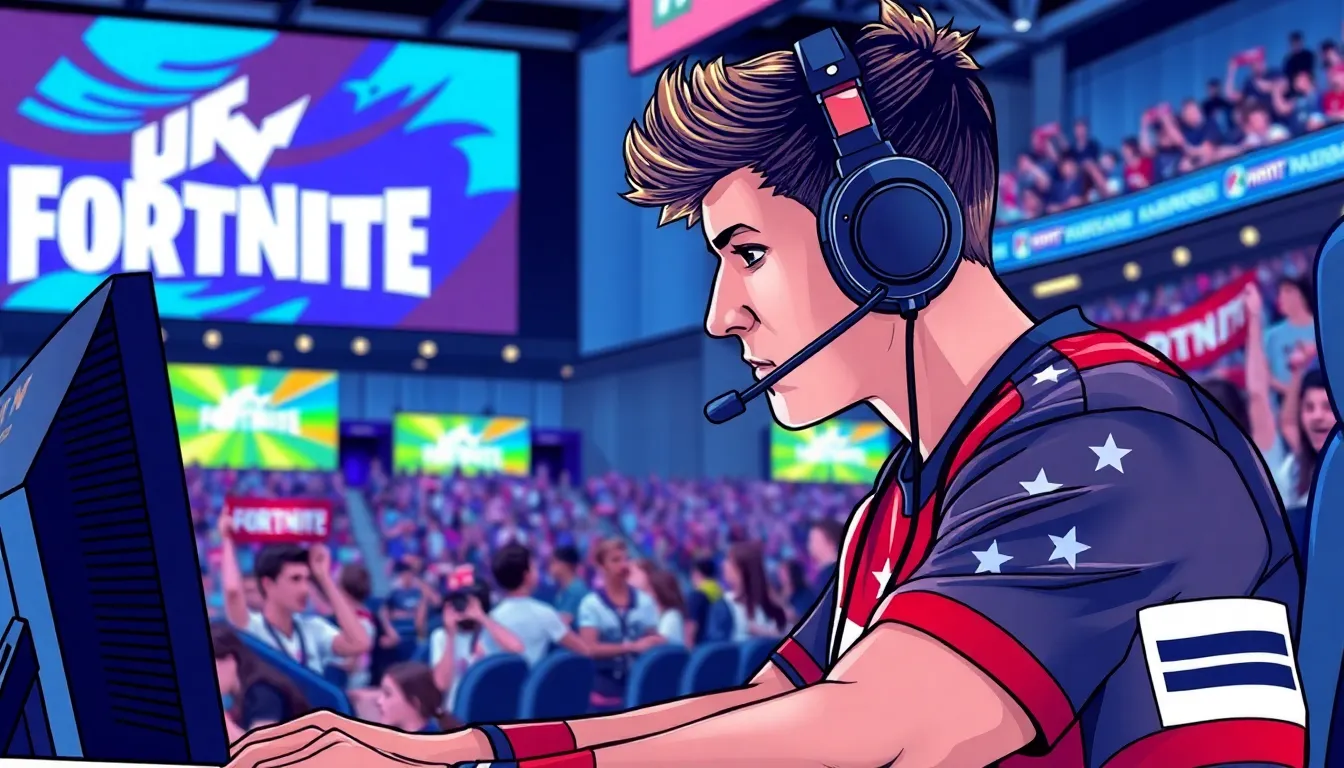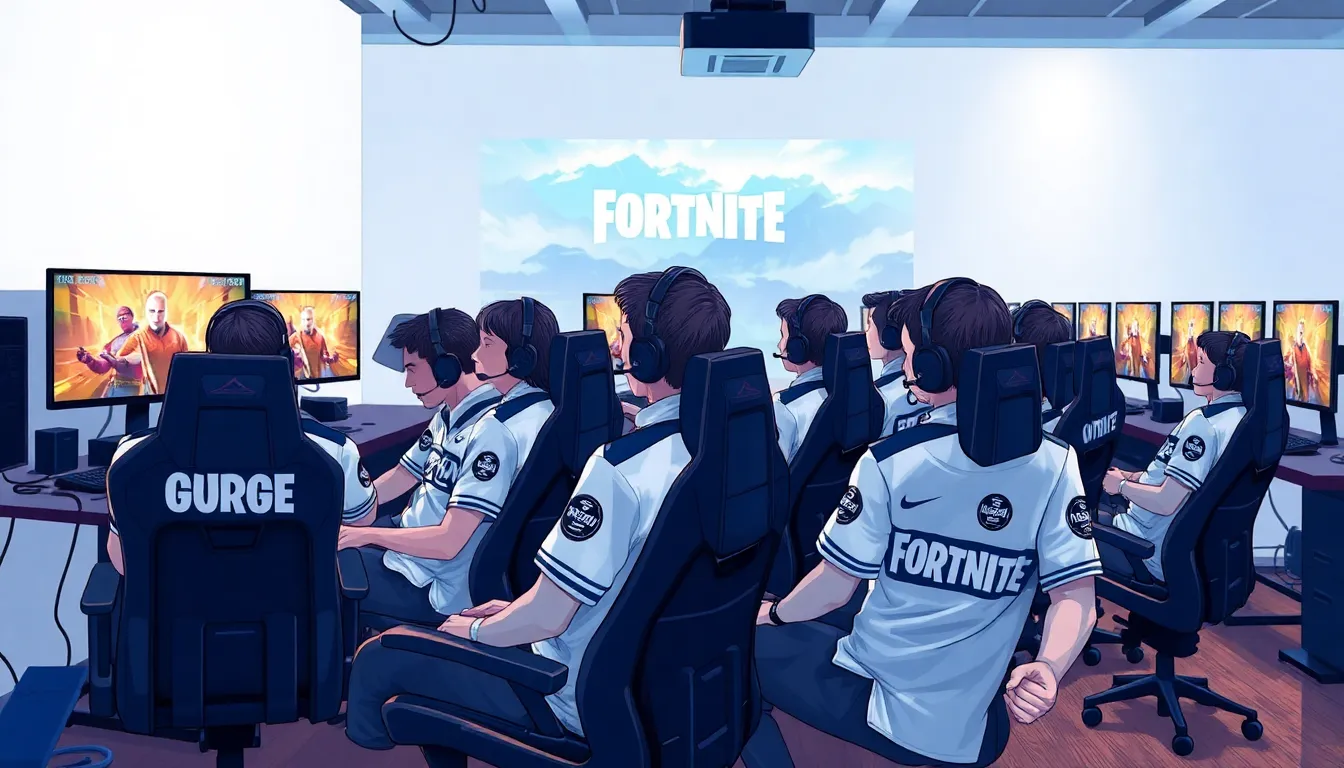The Best Fluffy Pancakes recipe you will fall in love with. Full of tips and tricks to help you make the best pancakes.

Fortnite Esports Teams: Discover the Elite Players Dominating Competitive Gaming
In a world where building skills rival architectural degrees and victory dances are the new high-fives, Fortnite esports teams have transformed gaming into a competitive spectacle. These squads aren’t just a bunch of friends playing video games; they’re the elite athletes of the digital arena, battling it out for glory and a hefty prize pool.
Picture this: players diving from the Battle Bus, crafting epic structures, and pulling off jaw-dropping moves that leave spectators gasping. The stakes are high, and the excitement is palpable. As Fortnite continues to dominate the esports scene, fans are glued to their screens, cheering on their favorite teams like they’re at a live sports event. Join the ride as we explore the ins and outs of these dynamic teams, their strategies, and what makes them the champions of the Fortnite universe.
Fortnite Esports Teams
Fortnite esports teams represent the pinnacle of competitive gaming. Player skill and teamwork define each team’s success in intense tournaments. Success hinges on strategic gameplay and adaptive tactics, allowing teams to navigate the dynamic challenges posed by opponents.
Numerous teams compete at various levels, from amateur to professional. Organizations like Team SoloMid, FaZe Clan, and Sentinels showcase exceptional talent and commitment. Each team boasts unique strengths, whether through aggressive gameplay or strategic positioning.
Competitive events attract millions of viewers, underlining the popularity of Fortnite esports. Fans engage passionately with their favorite teams during high-stakes tournaments. Major competitions, such as the Fortnite World Cup, offer substantial prize pools, further incentivizing teams to excel.
Many players come from diverse backgrounds, bringing a wealth of experience and individual style. Collaboration among teammates fosters synergy, enhancing overall performance. Coaches often analyze gameplay to refine strategies, ensuring teams stay competitive.
The rise of streaming platforms has increased visibility for many Fortnite esports teams. Fans can watch live matches and interact in real-time, creating a vibrant community atmosphere. Fan support often translates to sponsorship opportunities, benefiting organizations financially.
As Fortnite continues to evolve, so do its esports teams. Innovations in gameplay mechanics and map design create new challenges and opportunities. Teams must adapt rapidly to maintain their competitive edge in this ever-changing landscape.
Top Fortnite Esports Teams

Fortnite esports teams exemplify the pinnacle of competitive gaming. These squads consist of players specializing in distinct roles, optimizing team performance through collaboration and strategy.
Team Structures and Roles
Teams generally comprise several key roles, ensuring a balanced approach to gameplay. Each role serves a specific function—builders craft defensive structures during battles, while shooters focus on eliminating opponents. Support players back up the main attackers, providing healing or resources when necessary. Coaches analyze opponents and refine strategies, offering insights that enhance team effectiveness. Communication remains vital, allowing teams to adapt strategies on-the-fly for optimal outcomes.
Notable Players
Several standout individuals have shaped the competitive Fortnite landscape. Bugha, a World Cup champion, set records with his exceptional skill and earning potential. Tfue gained fame for his mechanic prowess and consistent tournament placements. Cloud9’s BenjyFishy gained recognition for his young age and competitive success. Each player brings unique styles that contribute to their team’s overall strategy. Their achievements not only elevate personal profiles, but also significantly impact their respective teams.
Major Fortnite Esports Tournaments
Fortnite esports tournaments represent thrilling showcases of skill and strategy, attracting players and fans alike. Major competitions test teams in various formats, providing diverse experiences.
Competition Formats
Multiple formats characterize Fortnite tournaments, including solo, duo, and squad configurations. Solo competitions spotlight individual player skill, while duos require teamwork between two players. Squads involve four players, emphasizing collaboration and strategy. Each format brings unique challenges and dynamics, allowing teams to adapt their approaches. Furthermore, some tournaments feature a points-based system, rewarding consistent performance, while others rely on elimination-based scoring. This variety keeps the competitive scene fresh and exciting.
Prize Pools and Sponsorships
Substantial prize pools accompany major Fortnite tournaments, often reaching millions of dollars. The Fortnite World Cup offered over $30 million in 2019, establishing records in esports. Sponsorships play a critical role in financing events, with brands eager to partner due to the game’s massive reach. Additionally, established teams attract lucrative deals, further solidifying their presence in the esports landscape. This influx of funding supports not only competitive tournaments but also grassroots events, helping to nurture emerging talent in the Fortnite community.
Future of Fortnite Esports Teams
Fortnite esports teams face an exciting future, characterized by ongoing growth and adaptation. Teams must innovate strategies to keep pace with evolving gameplay mechanics and competitive dynamics. Emerging trends indicate increased collaboration between developers and teams, fostering a more engaging environment for players and fans.
Many teams are prioritizing player wellness and mental health, recognizing the intense pressure associated with high-stakes competition. Investing in psychological training and support resources helps players maintain peak performance during tournaments. As more teams adopt these practices, the entire esports community benefits, promoting sustainability and longevity in competitive gaming.
Streaming platforms continue to play a crucial role in the future of Fortnite esports. More fans are tuning in to watch live events, and the demand for content drives teams to engage with audiences through creative and interactive approaches. This trend strengthens brand loyalty, resulting in expanded sponsorship opportunities.
Data reveals that viewership for major Fortnite tournaments, such as the World Cup, has reached millions, solidifying Fortnite’s position in the competitive gaming landscape. Prize pools for tournaments are set to increase, further motivating teams to enhance their skill sets and strategies. This financial incentive encourages a higher level of competition, as teams vie for prominence and success.
Recognizing the importance of diversity, many teams prioritize recruiting players from various backgrounds, which fosters innovation and unique gameplay strategies. Individual talents bring distinctive styles, contributing to a rich competitive scene. Coaches analyze gameplay meticulously, ensuring that teams remain adaptable and responsive to opponents’ strategies.
The integration of technology, such as advanced analytics, can further shape the tactical evolution of Fortnite esports teams. By harnessing data, teams refine decision-making processes, improving overall performance. Continuous growth in the esports industry will undoubtedly influence Fortnite’s trajectory, driving it towards new heights.
Conclusion
Fortnite esports teams are at the forefront of a dynamic and evolving landscape that merges gaming with competitive sports. As these teams continue to adapt to new challenges and gameplay mechanics, they not only elevate the competitive scene but also inspire a passionate community of fans.
The emphasis on teamwork and strategy showcases the depth of skill required to thrive in this arena. With major tournaments drawing millions of viewers and significant prize pools, the stakes have never been higher.
As the industry grows, the future looks bright for Fortnite esports teams, promising innovative strategies and increased engagement with fans. The journey ahead will undoubtedly shape the next chapter in competitive gaming, solidifying Fortnite’s position as a leader in the esports world.
